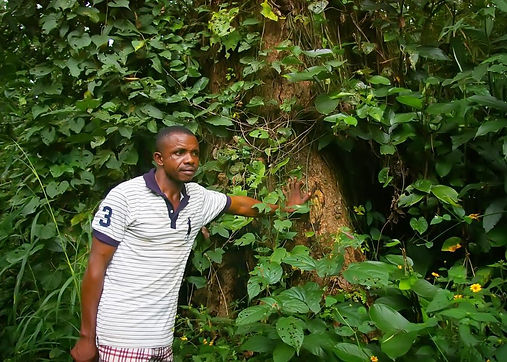

Who We Are
Iroko Tree Empowerment Initiative (ITEI) is a local Nigerian non-profit organization established in 2024 as a local implementing partner of the Switzerland-based SmallWorldProject Swiss. Rooted in a shared vision for positive change, we are dedicated to fostering rural and community development through education, environmental sustainability, and self-reliance.
At ITEI, we believe empowering communities to take charge of their growth leads to meaningful and lasting change. With the support of SmallWorldProject Swiss, we combine global expertise with local insights to deliver impactful solutions tailored to the needs of the people we serve.
OUR INITIATIVES
WHY WE EXIST
Across Africa, and particularly in Nigeria, many villages hold onto cherished traditions and ways of life. These traditions, often passed down orally, face the risk of fading away.
Our mission is to empower these communities to thrive in harmony with their environment. We achieve this by providing them with the information and technology they need to be self-sufficient, without disrupting the delicate balance of their ecosystem.
We believe in a balanced approach – respecting local traditions while introducing advancements that can benefit their lives.
Our first step is to support their needs for self-sustainability. Alongside this, we gently encourage the preservation of their culture, traditions, and forests regeneration. Ancestral laws like "Ikwainye Umunna" serve as a guiding light in this process. Our ultimate goal is to see this successful model replicated and flourish in many more communities across Africa.


Our purpose
Empowerment for Self-Sustainability: The project aims to provide communities with the information and technology they need to meet their basic needs and thrive independently, ensuring a long-term and sustainable future.
Preservation of Culture and Tradition: The project recognizes the importance of existing traditions and aims to foster their continuation alongside advancements. This includes supporting "Ikwainye Umunna" ancestral laws as a guiding principle.
Environmental Harmony: The project emphasizes achieving self-sufficiency without harming the surrounding ecosystem. This implies sustainable practices and respect for the natural environment / reforestation, ecosystem restoration in which these communities reside.
"Africa’s spirit is woven from the threads of history, resilience, and endless potential. Each day we create history, is a step towards realizing our collective dreams."
Unknown.
Our vision
Empowerment for Self-Sustainability: The project aims to provide communities with the information and technology they need to meet their basic needs and thrive independently, ensuring a long-term and sustainable future.
Preservation of Culture and Tradition: The project recognizes the importance of existing traditions and aims to foster their continuation alongside advancements. This includes supporting "Ikwainye Umunna" ancestral laws as a guiding principle.
Environmental Harmony: The project emphasizes achieving self-sufficiency without harming the surrounding ecosystem. This implies sustainable practices and respect for the natural environment / reforestation, ecosystem restoration in which these communities reside.


Our story
The Umunna.
Before the tides of colonization, Africa's societies were a cradle of harmony, with indigenous institutions like the "asetena kese" of the Ashanti tribe in Ghana and the "Umunna" of the Igbo tribe in Nigeria, which embodied the principles of peace and circular coexistence. Though these systems were disrupted, their spirit endures, waiting to breathe new life into today's communities.
The Igbo "Umunna" is a social unit referring to a patrilineal lineage group, comprising descendants of a common male ancestor. This group includes men, women, and children within that lineage. The Umunna plays a crucial role in Igbo society, providing individuals with a strong sense of belonging, identity, and social support.
We leverage the principles of the Umunna to engage with the community today and to accurately identify the actual needs of the people. Building consensus and facilitating dialogue within the community aids in the sustainability of our project.
Empowerment for Self-Sustainability: The project aims to provide communities with the information and technology they need to meet their basic needs and thrive independently, ensuring a long-term and sustainable future.
Preservation of Culture and Tradition: The project recognizes the importance of existing traditions and aims to foster their continuation alongside advancements. This includes supporting "Ikwainye Umunna" ancestral laws as a guiding principle.
Environmental Harmony: The project emphasizes achieving self-sufficiency without harming the surrounding ecosystem. This implies sustainable practices and respect for the natural environment / reforestation, ecosystem restoration in which these communities reside.